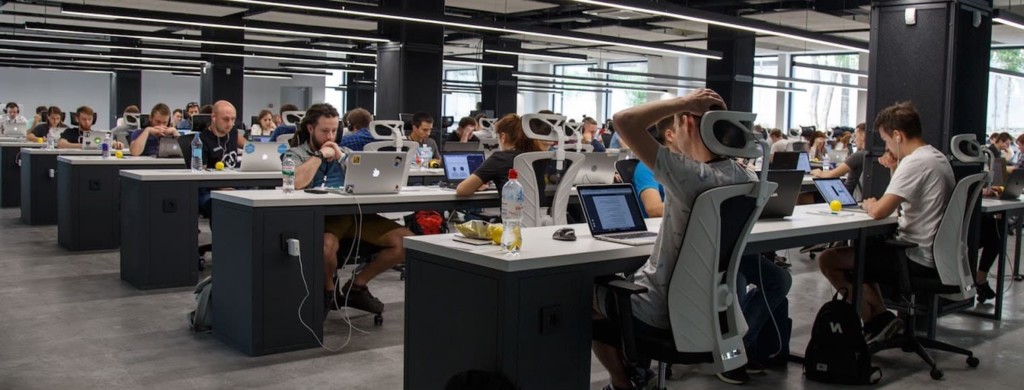Early Entrants Into the Field of Teaching Blockchain

The blockchain technology market could top $2 billion in three years as companies, NGOs and governments understand the potential to create customer trust, cut down on counterfeit goods, reduce transaction costs, and reach emerging markets.
While there are a growing number of ways blockchain is being used in banking, retail, and education, it’s still relatively difficult to learn the skills to compete for lucrative new jobs being created.
According to the largest global freelancing website, Upwork, blockchain is ranked as the hottest technology in its quarterly skills index. Even with the cooldown of the cryptocurrency markets, the demand for blockchain job skills grew six thousand percent in just the first quarter of this year.
Juha Mikkola, co-founder of Wyncode Academy, a coding school, said some developers are being paid double the going rate for their blockchain experience. “It’s not just tech companies that need this talent, it’s real-estate, non-profits, and banks,” Mikkola said.
Early Blockchain Education Initiatives
Leading university computer science programs have been quick to respond. According to new research, 42 percent of the top 50 universities in the world offer at least one course on cryptocurrency and blockchain technology. MIT offers a six-week online blockchain certificate program (in partnership with 2U). Oxford offers a similar six-week certificate program (also powered by 2U).
Coursera offers a four-course specialization in blockchain. Udacity offers a six-month nano degree for blockchain developers. Courseware is supplemented with office hours with their Experts-in-Residence.
Atlanta-based Kingsland University (founded ten years ago as Social Media Marketing University) offers an accredited blockchain training program for developers. The hybrid program involves four weeks of face to face training and four weeks of project work. They are offering scholarship funds to reach students in countries where such training is not available. They claim 275,000 students in countries globally including the US, Singapore, Australia, and the Philippines. Kingsland also offers a two-day executive course.
Blockchain Council (@ChainCouncil) is a group of subject experts and enthusiasts evangelizing Blockchain for global impact. They offer a self-paced training program to become a Certified Blockchain Developer. Participants learn the discipline of Distributed Ledger Technology from a vendor-neutral perspective.
A federation of trade unions in Singapore, the National Trading Union Congress Learning Hub (NTUC), in partnership with Huobi Group, announced this week a series of new courses on Blockchain for cryptocurrency enthusiasts and fintech professionals. The courses will cover the basics of bitcoin and distributed ledger technology, with an emphasis on practical uses of the cryptocurrency (see the outline of the introductory course).
Aeternity ventures sponsored the first blockchain course at SoftUni, Bulgaria, and recently launched the first decentralized blockchain incubator program which saw ten dynamic startups battle it out for $1.3 million in funding.
London-based education startup B9lab launched an online Certified Ethereum Developer Training program in 2016 (powered by edX). They also offer an executive course.
Education is core to the philosophy of engineering companies like IOHK. Director of Education Lars Brünjes, a PhD in Pure Mathematics, is a specialist in Haskell, a functional and secure programming language chosen to construct the leading cryptocurrency Cardano. Lars has also led courses worldwide in the durable Haskell programming language in Athens and Barbados, with the best graduates from the program offered full-time positions at IOHK.
Want a free introduction? Start with the Blockchain Innovation podcast and Frederick Munawa’s free videos. BlockGeeks has a basic tutorial and The Linux Foundation offers a free course on Hyperledger (an open source business blockchain software).
The space is moving fast and some providers have come and gone, so test drive where you can and ask for graduate referrals.
This post was originally published on Forbes.
Stay in-the-know with all things edtech and innovations in learning by signing up to receive our weekly newsletter, Smart Update.








0 Comments
Leave a Comment
Your email address will not be published. All fields are required.